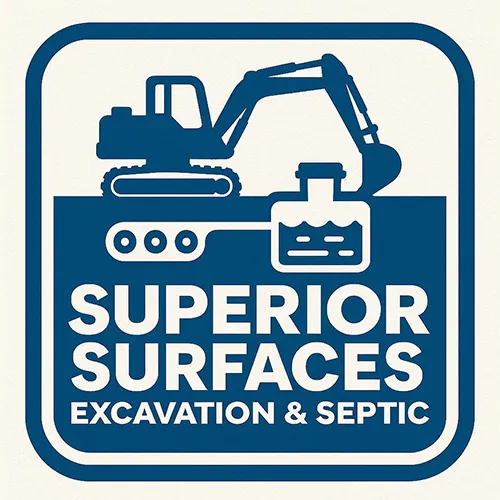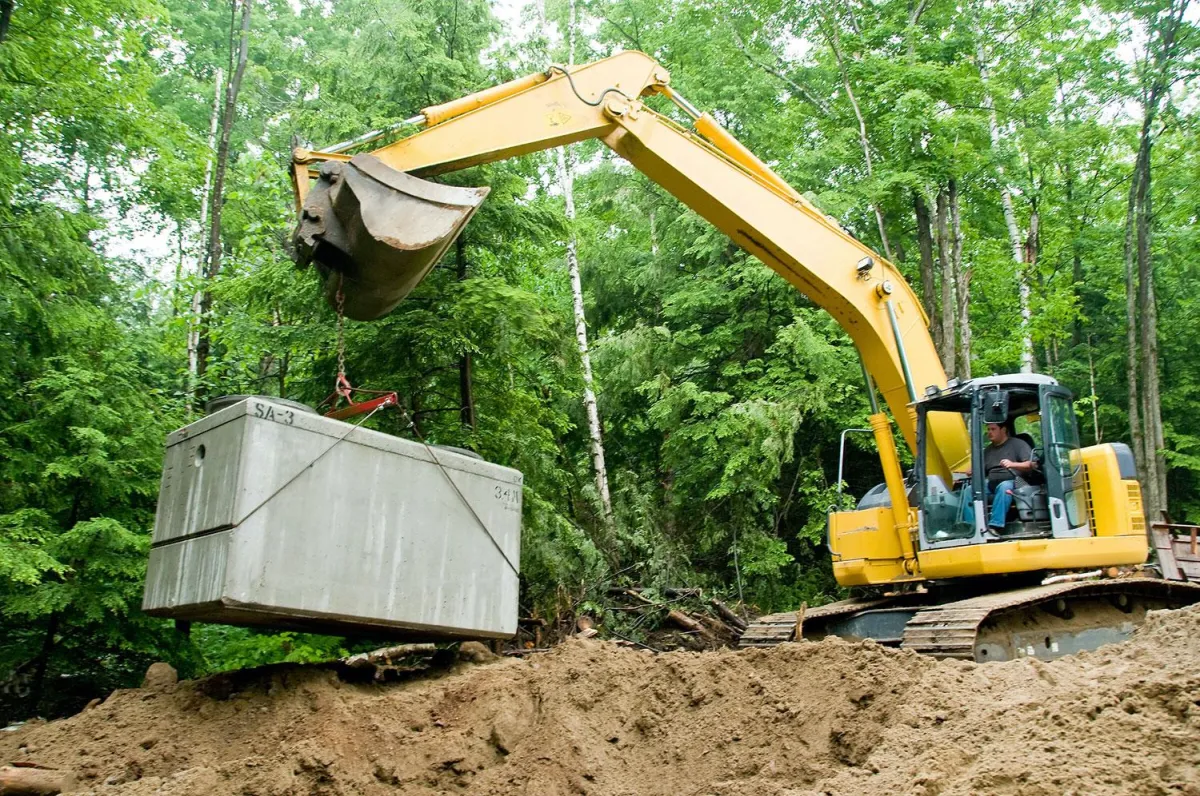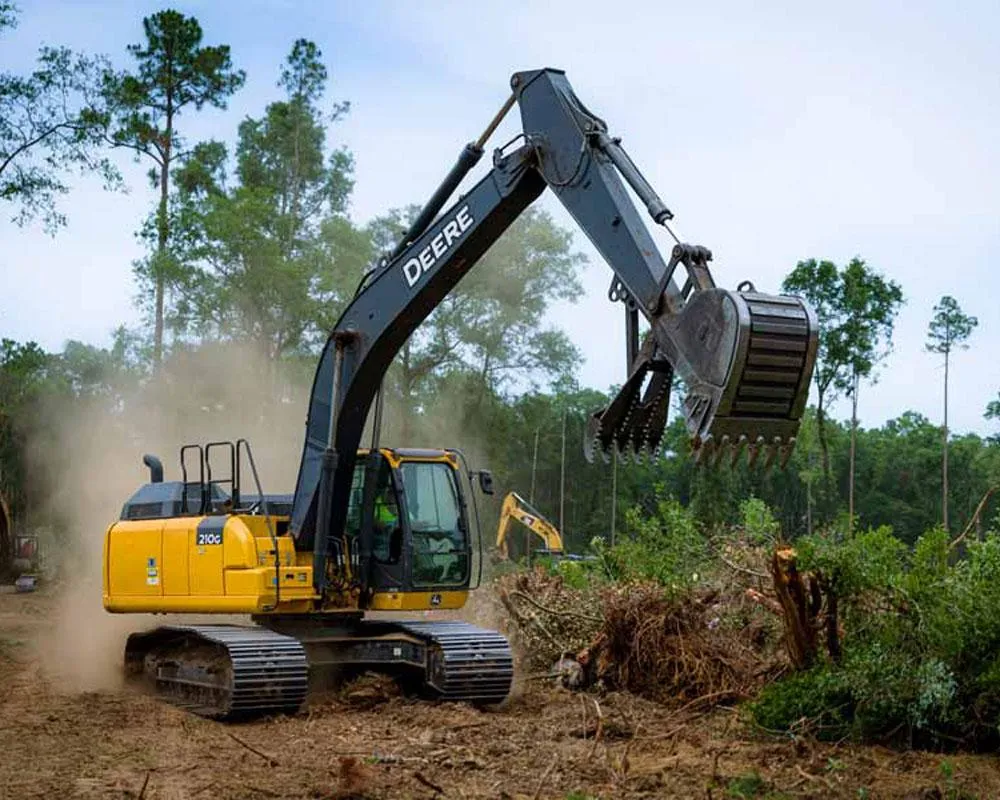
Serving Michigan counties: Macomb, St Clair, Wayne, Oakland, Genesee, and Tuscola Counties
Excavation and Septic Company near Ira Township in St. Clair County, MI
Superior Surfaces LLC is Committed to superior quality and results!

AVOID COSTLY MISTAKES:
Do NOT hire an excavating contractor without first reading our free guide:
The ULTIMATE Excavation & Septic "Success Guide."

Excavation and Septic Company near Ira Township in St. Clair County, Michigan
Successful projects in Ira Township start with the ground. Grades, soils, water, and utilities determine how well a property performs for decades. When excavation and septic work are done right, sites drain properly, structures stay stable, and systems pass inspection. When they are not, costs rise and problems return. Use this guide to understand what a qualified contractor does, the benefits of choosing nearby professionals, and the straightforward process to hire with confidence.
How Can We Help?


What an Excavation and Septic Company near Ira Township in St. Clair County, Michigan does
A capable crew prepares land and installs dependable onsite wastewater systems. Excavation services include clearing, rough grading, fine grading, trenching for utilities, driveway base work, culverts, and drainage improvements. For structures, operators dig foundations and basements, protect existing lines, and manage spoils so the site remains organized and safe. Benchmarks are set, elevations are verified, and access is maintained for deliveries and inspections.
Septic services span testing, design coordination, installation, repair, and replacement. The work begins with a soil evaluation or perc test and a layout tailored to the lot. Crews set tanks, run inlet and outlet lines, install distribution components, and build drain fields with correct slopes, bedding, and compaction. Materials are chosen for durability and code compliance. Lines are tested where required, and inspections are scheduled before backfill to document the system.
Local knowledge reduces risk. Nearby operators know typical soils and water tables, understand permit steps, and plan around seasonal conditions in Michigan. That experience keeps budgets realistic and schedules steady.
What are the benefits of hiring an Excavation and Septic Company near Ira Township in St. Clair County, Michigan
Hiring local improves speed, coordination, and accountability. Proximity shortens mobilizations and allows quick responses when the weather changes. Supplier relationships help secure tanks, pipe, fabric, and stone on the right day. Coordination with inspectors keeps momentum steady and reduces idle time.
Precision improves with familiarity. Crews who work the same soils year after year make better calls on field location, trench depth, bedding, and drainage. Communication is clearer when you can meet on site, review stakes and grades, and approve changes in person. Fewer surprises mean fewer change orders and more predictable invoices.
Safety also benefits. Teams that know local utilities and roads create stable ramps, manage traffic, and protect neighbors. Clean sites reflect careful planning and respect for the community.
See Our Excavation and Septic

✔️ Commercial Excavation
✔️ Residential Excavation
✔️ Basement Excavation
✔️ Demolition
✔️ Large Pond Construction
✔️ Small Pond Construction
✔️ Dozer Work
✔️ Forestry Mulching
✔️ Grading, Lot Clearing
✔️ Retaining Walls
✔️ Concrete Flatwork - Driveways, Sidewalk, Foundations
✔️ Foundation Repairs
✔️ Full Site Preparation
✔️ Foundation Repairs
Quality Services Launched FAST!

✔️Septic Install and Repair
✔️ Septic Inspections
✔️ Septic Installs Traditional Systems
✔️ Septic Tanks - Plastic/Poly
✔️ Septic Tanks - Concrete
✔️ Drain Field Replacement
✔️ Drainage Systems
✔️ Aerobic Treatment Systems
✔️ French Drains
✔️ Trenching
What Are You Waiting For?
What is the process for hiring an Excavation and Septic Company near Ira Township in St. Clair County, Michigan
Step one is discovery. Share goals, drawings, photos, and constraints. A good contractor listens first and outlines the next steps.
Step two is a site visit. The team reviews access, grades, soils, wells, and setbacks. For septic projects, they coordinate testing and confirm the system type that fits your lot.
Step three is a written scope and estimate. Expect tasks, materials, allowances, and exclusions so you know exactly what is included and what is not. Timelines and milestones should be clear.
Step four is permitting and scheduling. The contractor assembles documents and submits applications. Once permits are moving, you receive a target start window and a communication plan that sets expectations for updates.
Step five is mobilization and production. Crews locate utilities, install safety controls, and begin excavation or septic work in a defined sequence. Elevations and slopes are checked at milestones to keep quality consistent.
Step six is restoration and closeout. The team backfills, compacts, fine grades, restores disturbed areas, and provides as-built notes, test results, and inspection records so you have a complete file.
Cost and timeline expectations with an Excavation and Septic Company near Ira Township in St. Clair County, Michigan
Every site is unique, yet clear communication makes budgets and schedules predictable. Ask for a line item scope that separates earthwork, materials, trucking, restoration, and inspection fees. Clarify what is included and what could trigger a change order, such as unsuitable soils, buried debris, high groundwater, or access limits that require smaller equipment. Request target start and finish windows, plus the sequence for each phase, so you know when utility trenching, tank setting, and field construction will occur.
Weather and inspections influence timelines in Michigan, especially during freeze and thaw periods. A nearby crew can pivot around storms, protect open trenches, and maintain safe access until conditions improve. You can help the schedule by preparing the site, keeping the driveway open for deliveries, and making decisions quickly when options are presented. With transparent pricing and steady updates, you will know where the project stands each week and what comes next, which keeps stress low and progress visible.
Why choose a trusted excavation and septic company near Ira Township in St. Clair County, Michigan
Three traits separate dependable operators. Clear communication, equipment readiness, and clean sites. Expect daily updates, quick responses, and simple explanations of choices and costs. Well-maintained excavators, dozers, compactors, and trucks keep production steady and prevent downtime. Erosion controls, stable ramps, and tidy roads show respect for neighbors and inspectors. Add local references and consistent results across seasons, and you have a partner you can trust.
Your next step
If you are planning earthwork, a new build, an addition, or a septic project in Ira Township or anywhere in St. Clair County, begin with a conversation. Outline your goals, budget range, and timing, then schedule a site walk. With a clear scope, a realistic schedule, and a nearby team that understands Michigan conditions, you can move from idea to final grade and approved inspections with confidence. Strong excavation and a well-built septic system support everything you do on the land. Start today and build with confidence. Now.
Hours: Monday-Saturday 6:00am-6:00pm
Extended hours by appointment only.
Address: 23450 29 Mile Rd, Ray, MI 48096, USA
All rights reserved | Client Support Area